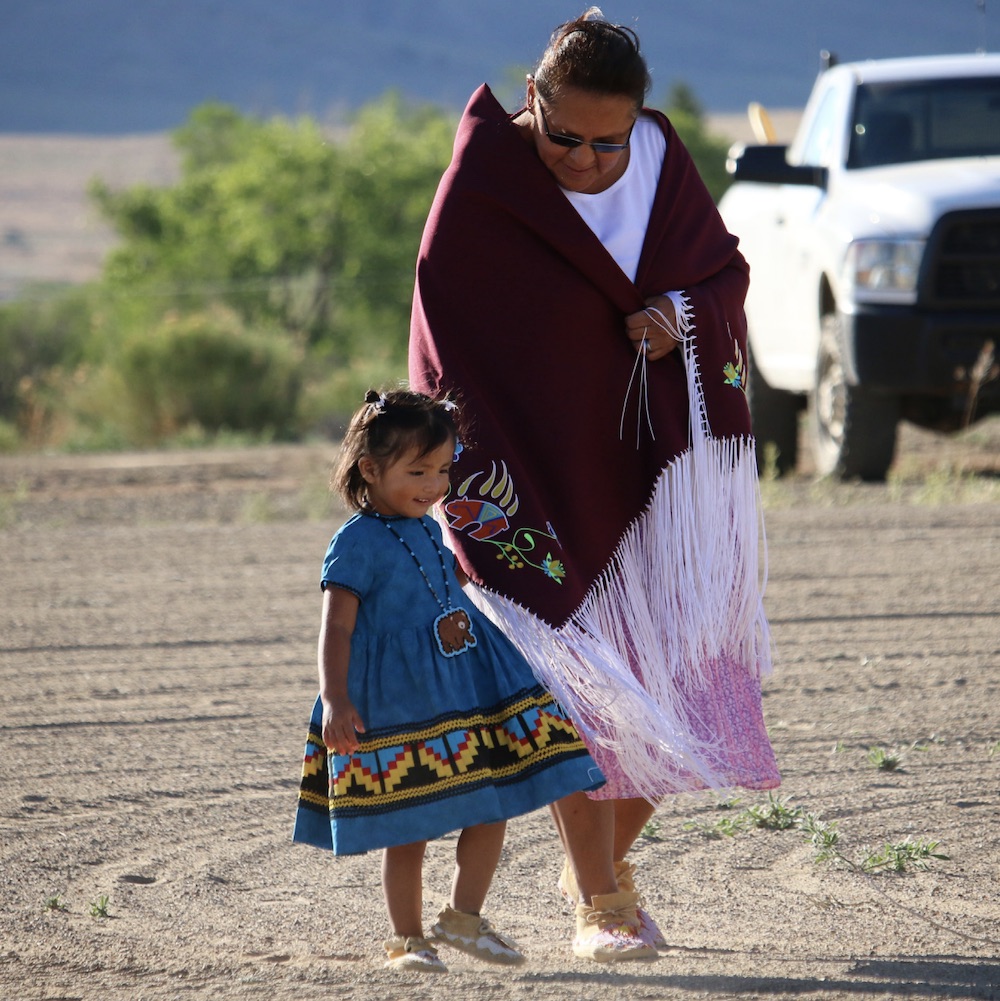
- Details
- By Darren Thompson
WASHINGTON—The Bureau of Indian Affairs said this week it is adding two tribes to a social service pilot program aimed at uplifting tribal communities in a culturally competent, self-determining manner.
The Tiwahe Initiative Social Services Demonstration Program — known as the Tiwahe Initiative — was launched by the Obama administration in 2015 to improve health and wellness in Tribal communities. Tiwahe (ti-wah-hay) means family in the Lakota language and symbolizes the interconnectedness of all living things and one’s personal responsibility to protect family, community, and the environment.
In an announcement this week, the BIA said it had selected the Confederated Salish and Kootenai Tribes in Montana and the Paiute Indian Tribe of Utah to participate in the program. The two tribes will join six other pilot sites run by the Association of Village Council Presidents (comprised of 56 Alaska Native villages), Fort Belknap Indian Community of the Fort Belknap Reservation of Montana, Pascua Yaqui Tribe of Arizona, Red Lake Band of Chippewa Indians (Minnesota), Spirit Lake Dakota Tribe (North Dakota), and Ute Mountain Ute Tribe (Colorado) in the BIA program.
The program allows Tribes to reshape social service programs and services to fully infuse tribal culture, traditions, and customs and meet the needs of their community.
“The Tiwahe Initiative works because it gives Tribes the freedom and flexibility to build programs that reflect the needs of their communities, while incorporating their own views, values, and traditions,” Assistant Secretary-Indian Affairs Bryan Newland said in a press release on Wednesday. “It is the job of the federal government to support Tribes’ work at the local level, by providing resources and working with them as a collaborative trustee to make lives better for people in Tribal communities.”
The program has shown early success. In 2021, the six pilot sites submitted a final report that demonstrated accomplishments in the 5 years of implementation. The program has been funded approximately $184.3 million by Congress between FY2015 and FY2020. According to the report, funding provided more than $76 million on Social Services programs and more than $44 million on Indian Child Welfare Act (ICWA) programs.
In their report, the tribes wrote: “The Tiwahe Initiative is a strategy that is consistent with the Federal Government’s policy on self-determination and self-governance. As demonstrated throughout this report, it offers the Congress and (Indian Affairs) a solid framework to build from—as it will strengthen Tribal communities and families, driven by local Tribal priorities and circumstances.”
The program funds the Tiwahe National Coordinator position, Women and Children’s Shelters in Tribal communities, hiring of additional Tribal and BIA Child Protective Services and Child Welfare workers, and provides a social worker training institute for Indian Country.
The BIA also announced that 10 Tribes and Tribal organizations have been chosen to receive $100,000 in one-time funding to implement programs that were included in their previous Tiwahe proposal, or participate in the Tiwahe incubator. Tribes and organizations have the opportunity to perform a needs assessment and develop a Tiwahe plan.
The 10 Tribes and organizations receiving $100,000 in one-time funding are: Cook Inlet Tribal Council (Alaska), Tanana Chiefs Conference (Alaska), Penobscot Nation (Maine), Leech Lake Band of Ojibwe (Minnesota), Fort Peck Assiniboine and Sioux Tribes (Montana), Cherokee Nation of Oklahoma, Pawnee Nation (Oklahoma), Oglala Sioux Tribe (South Dakota), Jamestown S'Klallam Tribe (Washington), and the Red Cliff Band of Lake Superior Chippewa (Wisconsin).
According to the BIA, if Tribes choose to participate in the Tiwahe incubator, Tribes will be ready to join the Tiwahe Initiative as soon as Congress approves additional funding for new Tiwahe Tribes.
This year, President Biden requested $78.1 million for the Tiwahe Initiative, which is an increase of $33.5 million from FY 2023.
Earlier this month, Assistant Secretary of the Interior Bryan Newland said that President Biden’s budget increase would make significant investments in Tribal sovereignty and revitalization.
“This Administration’s commitment to supporting the sovereignty of Tribal Nations and addressing long-standing disparities is unprecedented and will remain an important moment in our nation’s history,” Newland said.
More Stories Like This
End of Enhanced Obamacare Subsidies Puts Tribal Health Lifeline at RiskSanta Ynez Tribal Health Clinic to Host Free Pediatric Dental Clinic
Rez Vet Earns Global Recognition for Serving Navajo Nation's Animals
Chickasaw Nation Governor Bill Anoatubby leads groundbreaking for pediatric clinic
Cherokee Nation Eyes $4 Million Transitional Housing Program

